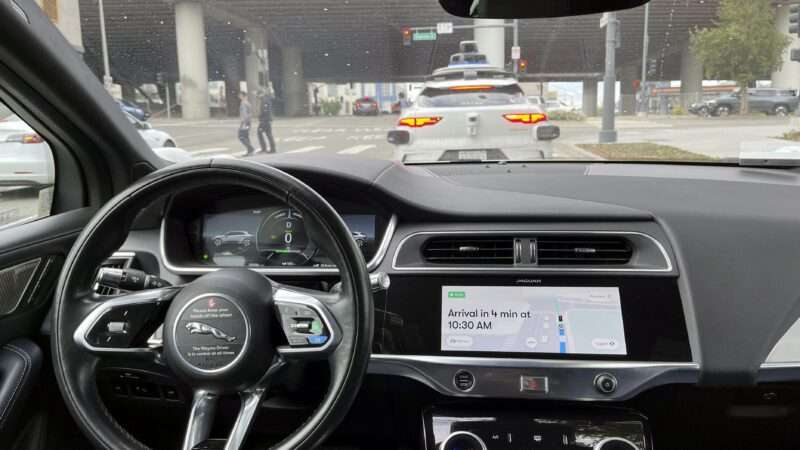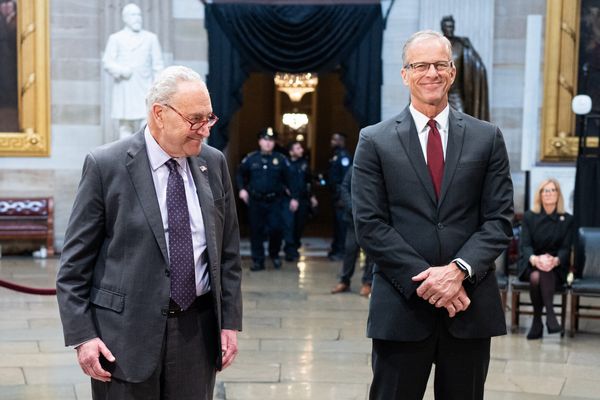
While christening a new UCLA technology and research center in January, Gov. Gavin Newsom let loose with some fairly typical rhetoric about California's leading-edge role in tech development: "California is the epicenter of global innovation—from the creation of the internet to the dominance of artificial intelligence, humanity's future happens here first."
Yet for the so-called epicenter of innovation, our state certainly doesn't give innovators a lot of room to experiment with new ideas. California lawmakers and regulators are so intent on limiting and controlling any promising new development that we've instead become the poster child for Ronald Reagan's famous quotation: "If it moves, tax it. If it keeps moving, regulate it. And if it stops moving, subsidize it."
Maybe Newsom and the Democratic Legislature haven't noticed, but California has been facing a tech exodus, as many prominent firms leave for states that give them more elbow room to create the next wave of promising innovations. Given the state's dependence on capital gains revenue, it's one reason we're now facing a $45-billion or more budget deficit.
On the good news front, Crunchbase reports that the San Francisco Bay Area may be experiencing a tech resurgence based around artificial intelligence systems, with the region receiving "more than 50 percent of all global venture funding for AI-related startups." But will the state kill that boom before it takes off? Based on the latest actions of the legislature, the answer is "probably."
The Senate Appropriations Committee recently gave the go-ahead to Senate Bill 915, which would "prioritize local control in the decision to deploy autonomous vehicle services." In addition to gaining all the many state approvals, robo-taxi firms would also have to deal with exploding local regulations.
The legislation has been amended to apply to the 15 largest cities and it would forbid localities from banning self-driving cars, but that doesn't ameliorate my concern. This technology is rolling out mainly in big cities anyway. It's easy to kill a technology without outright banning it by, say, forcing these companies to face dramatically different driving rules in every different city where they go.
Like all cutting-edge innovations, self-driving cars strike many of us as an ominous and dangerous development. But most new cars already have various self-driving features (lane assist, adaptive cruise control, blind-spot monitoring). And computers are almost certainly better drivers than people. Nearly 43,000 Americans die in car crashes each year, almost all of them at the hands of human drivers. Widespread A.V. use could save thousands of lives, per research from RAND.
AVs offer fabulous benefits for disabled people, the elderly, and others who cannot or choose not to drive. Yet federal, state, and local officials are worried about a few minor and inevitable problems that have popped up as this technology experiences growing pains—e.g., minor accidents and concerns about traffic violations (as if ordinary drivers don't also sometimes violate traffic laws).
One advocate for S.B. 915 expressed concern about robo-taxis getting stuck at a tricky turn—as if that's a good excuse to add a pointless mish-mash of local regulations to the mix. Ironically, AV development is one area where state regulators have taken an admirably low-key approach. In March, the California Public Utilities Commission gave Waymo, the Alphabet company's driverless-car division, the ability to expand operations in the Bay Area and Los Angeles region and even drive on freeways up to 65 mph. But even when the state takes a sensible approach, the locals want to step in to gum up the works.
And SB 915 isn't the only example of the California Legislature's kneejerk hostility to innovation. Many states are trying to regulate artificial intelligence technology, but California's Senate Bill 1047, which passed out of the Senate and has moved to the Assembly, is easily the most far-reaching example. The bill would create a new state regulatory division to regulate A.I. We all know how effective the state's bureaucrats are at handling complex matters—as well as the impact of lawsuit-promoting statutes.
Basically, the measure forces A.I. developers to mitigate every conceivable harm from their technology by engaging "in speculative fiction about imagined threats of machines run amok, computer models spun out of control, and other nightmare scenarios for which there is no basis in reality," opined an opposition letter from the pro-tech Chamber of Progress. The group rightly fears that the measure undermines California's leading-edge role in the tech sector.
Last week, I wrote about the legislature's effort to limit A.I. technology in a simple, real-world application—self-checkout lanes. Under the guise of helping stores battle retail theft, Senate Bill 1446 is a union concoction designed to limit the use of this technology to protect union grocery jobs.
So, yes, California has been the epicenter of global innovation, but it's apparently not going to continue being so for long. Let's hope Newsom heeds his own words and gets out the veto pen.
This column was first published in The Orange County Register.
The post California's Regulations Might Steer Self-Driving Innovations to Other States appeared first on Reason.com.







